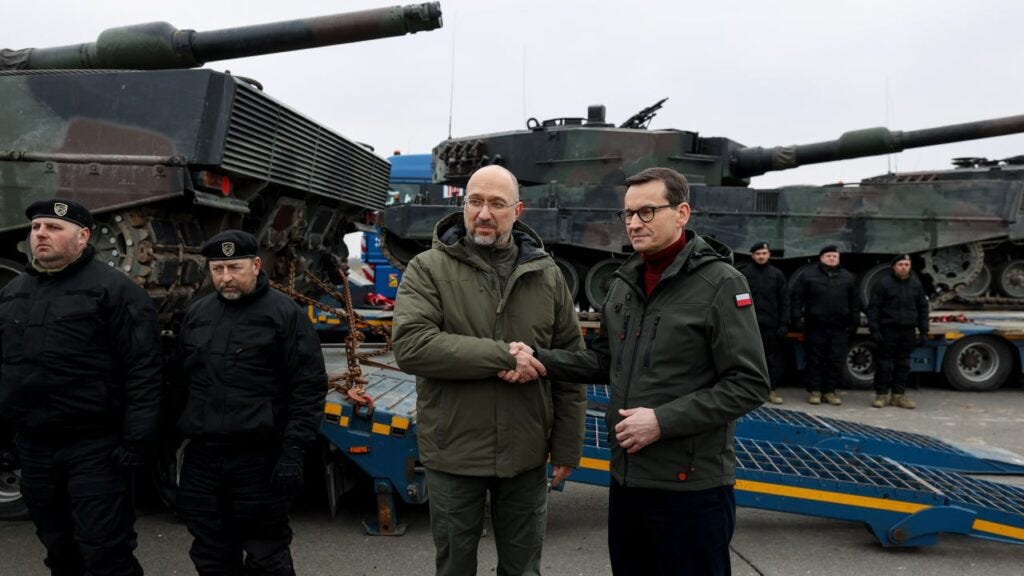Ukraine’s counteroffensive against Russia appears to be stalling, (See this frank article by Medea Benjamin and Nicolas Davies.) This isn’t surprising.
War is inherently unpredictable, but there are certain ingredients that contribute to the success of counteroffensives. Here are a few:
The element of surprise: Catching the enemy off-guard is always helpful. But everyone knew Ukraine was counterattacking, including roughly where and when.
Superiority at the point of attack: As a rough rule, an attacker needs at least a 3-to-1 superiority in force to prevail against a determined defender, along with a willingness and ability to accept casualties. It’s unclear to me that Ukraine had a clear superiority at their points of attack. Whether Ukraine can continue to sustain high numbers of killed and wounded is also unclear.
The synergy of combined arms: Everything in war is difficult, most especially orchestrating and conducting an offensive. “Combined arms” includes infantry, artillery, and tanks, moving with machine-like precision, supported by airpower, enhanced by intelligence, and kept supplied by adequate logistical chains. Ukrainian forces did well on the defensive in resisting often poorly coordinated Russian attacks, but now the combat boot is on the other foot, and it’s Ukraine that’s having trouble breaking through well-prepared Russian positions.
The importance of training and experience: While Ukrainian troops have gained experience over the last year or so, they have primarily been on the defensive while also assimilating new weapons and related equipment. They arguably lack the experience to launch coordinated offensives against determined resistance.
Effective leadership: It was said the presence of Napoleon Bonaparte on the battlefield was equivalent to the French having an extra army corps, i.e. roughly 30,000 men. Offensives go better when they’re led by skilled generals backed up by effective officers and experienced NCOs. I’m not aware of any Napoleon-types on either side of the Russia/Ukraine War, and I fear Ukraine has suffered too many losses to have a solid core of experienced officers and NCOs.
The Western solution to all this appears to be more promises of “magical” weapons like German Leopard tanks and American F-16 fighter jets. But weapons alone are insufficient to provide war-winning advantages. Military history teaches us that the side with superior weapons often loses to the side with superior skill and motivation. Think here of the U.S. experience in Vietnam, for example.
As I’ve said before, what I fear is that neither side can win this war decisively even as Ukraine suffers most grievously because the war is being fought in their country.
People like Senator Lindsey Graham talk tough about Ukrainians fighting to the last man with U.S. and NATO weaponry. Easy for him to say, since he’s not the one who’s fighting and possibly dying at the front. Meanwhile, U.S. companies profit from the sale of weapons, hence that apt descriptor from the 1930s, “the merchants of death.”
For the sake of argument, let’s say Ukraine is able to make modest territorial gains at high cost. This would be an excellent time to call for a truce and diplomacy. Ukraine can claim a face-saving “victory” (those modest gains) even as the Russians can boast of containing the much-hyped NATO-supported counteroffensive. Let both sides declare victory as they hash out a compromise that ends the killing and destruction.
What’s the real definition of “victory” here? For me, it’s a rapid end to a wasteful war before that war is allowed to escalate in ways that could spark a much wider and potentially catastrophic conflict involving nuclear powers.






Unfortunately, Blinken/Nuland/Sullivan/Austin/Biden (along with half-wits like Lindsey Graham and the war mongering press, namely the NYT and Washington Post) are all radical neocons. For them there is only one acceptable outcome--the destruction and break-up of Russia. Each time they are facing a new turning point in the war, they double down and send additional weapons which before were deemed not in play. They have decided to play nuclear chicken with Russia, and they clearly don't give a damn about the possible consequences. The inmates are running the asylum.
I agree wholeheartedly, Bill, about the point at which talks can begin. It will be a fairly fleeting moment during which both sides can claim to have met objectives. May the leaders on both sides have the wisdom and courage to press for an end to the conflict. Before, as you observe, the consequences ripple outward.